★★
“An arrowing experience.”
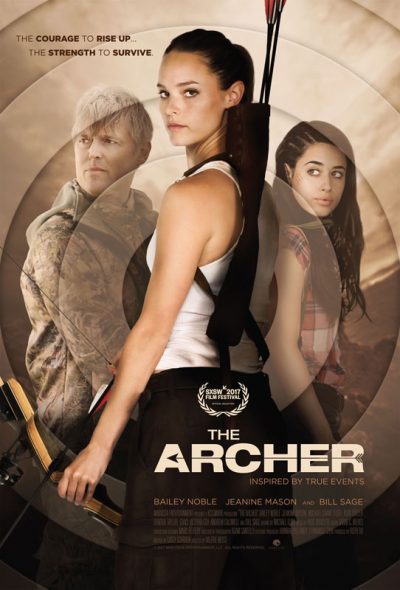 Lauren Pierce (Noble) is an expert archer, leading her high-school team. However, after she rescues a friend from sexual harassment, she finds herself on the wrong side of justice, and is sent to “Paradise Trails”, an incongruously-named juvenile detention facility, where harsh discipline and indefinitely extended sentences are the order of the day. And wouldn’t you know it, the place is run by a former Olympic archer – Bob Patrice (Sage) and his creepy son, Michael (Terry). It’s not long before Lauren is plotting an unofficial departure, along with new friend Becky (Mason), who knows the truth about what’s going on behind the scenes. When they get evidence proving it during their exit, they become the hunted as Bob and Michael will go to any lengths to stop the truth from getting out.
Lauren Pierce (Noble) is an expert archer, leading her high-school team. However, after she rescues a friend from sexual harassment, she finds herself on the wrong side of justice, and is sent to “Paradise Trails”, an incongruously-named juvenile detention facility, where harsh discipline and indefinitely extended sentences are the order of the day. And wouldn’t you know it, the place is run by a former Olympic archer – Bob Patrice (Sage) and his creepy son, Michael (Terry). It’s not long before Lauren is plotting an unofficial departure, along with new friend Becky (Mason), who knows the truth about what’s going on behind the scenes. When they get evidence proving it during their exit, they become the hunted as Bob and Michael will go to any lengths to stop the truth from getting out.
Opening with a claim about being “inspired by true events,” apparently that means the “kids for cash” scandal from Pennsylvania. While there’s nothing wrong with that as inspiration, it’s probably a mistake for the makers, apparently to want to make a serious statement, while adopting the tropes of the juvenile delinquent and women in prison genres. Brutal wardens; sadistic guards; lesbian subtexts… This all makes it kinda tough to take seriously, whatever statement they’re trying to make. And even that’s kinda muddied, beyond “sending kids to jail for bribes is bad.” Not much to argue with there. Probably more questionable, is the way every man here is an utter bastard. It gets kinda tiresome.
The main problem, however, is simply taking too long to get anywhere. The final 20 minutes or so, have Lauren and Becky trying to get through the wilderness around the facility, with Bob and Michael in pursuit. It’s well-crafted and tense, even if it builds to the inevitable final, bow-powered confrontation between Lauren and Bob, which you can see coming from a long way off. Unfortunately… it’s the final 20 minutes. The first hour are a real slog to get through, particularly the chunk after Lauren’s arrival at Paradise Trails. The script doesn’t have any real idea about where it needs to go or what it wants to do, once the basic concepts are established. As a result, it and the characters simply rotate gently in the wind, as interest evaporates gently.
There’s not even any real logic in the concept. Lauren is supposedly a “straight A’s” student with no previous record. Could have fooled me, going by the hyper-aggressive way she beats up on her pal’s boyfriend. That shows experience in the kicking of ass. Been nice if her ability to defend herself had come into play in the facility a bit more. Except, acknowledging women’s ability to be violent might have gone against the narrative apparently being peddled here. In that light, even the heroine’s use of a bow seems like some kind of liberal cop-out to avoid giving her the far more effective force multiplier of a fire-arm.
Dir: Valerie Weiss
Star: Bailey Noble, Bill Sage, Jeanine Mason, Michael Grant Terry





 This dates back from 2005, before Carano was a household name in the world of mixed martial arts, or a somewhat successful actress. At this point, she was only involved in the sport of muay thai, which as it’s name suggests, is a martial art originating in Thailand. She was one of five girls training in Las Vegas under Toddy – a nickname given because the teacher’s real name of Thohsaphol Sitiwatjana was too unpronounceable to Westerners! The goal of both Toddy and his students was a trip to Thailand to take on the best local practitioners of the sport. This “documentary” covers both their training and the visit itself, climaxing with Carano’s battle against the Thai champion.
This dates back from 2005, before Carano was a household name in the world of mixed martial arts, or a somewhat successful actress. At this point, she was only involved in the sport of muay thai, which as it’s name suggests, is a martial art originating in Thailand. She was one of five girls training in Las Vegas under Toddy – a nickname given because the teacher’s real name of Thohsaphol Sitiwatjana was too unpronounceable to Westerners! The goal of both Toddy and his students was a trip to Thailand to take on the best local practitioners of the sport. This “documentary” covers both their training and the visit itself, climaxing with Carano’s battle against the Thai champion.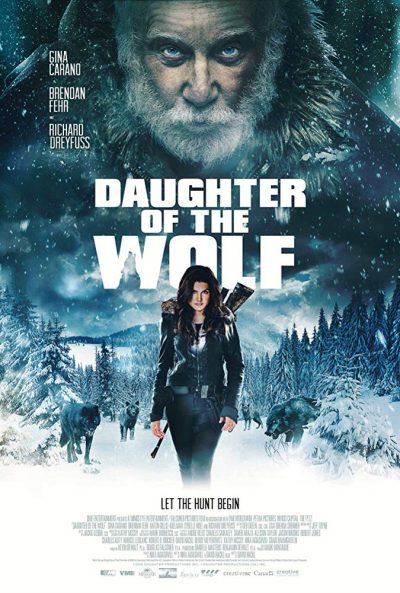 The cinematic goodwill Carano accumulated as the result of her electric debut in
The cinematic goodwill Carano accumulated as the result of her electric debut in 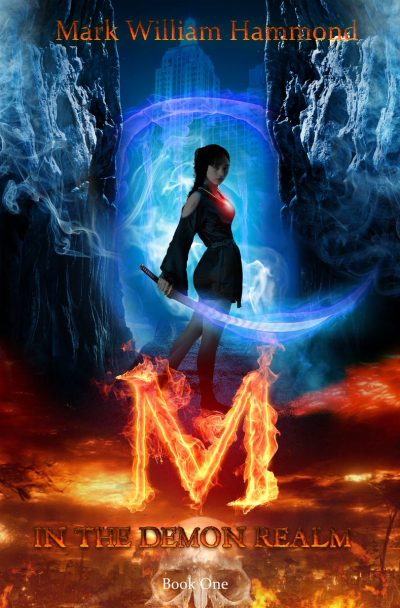 I feel a little uncertain about reviewing this, since it’s basically two-thirds of a single novel. Or maybe two connected novellas. Oddly, the three entries get longer as they go, starting at 110 pages, increasing to 160 for the second and finishing off at around 210. I’ve been waiting for the third and final part to show up on special offer for a while, but it hasn’t happened. The first two parts were somewhat intriguing, just not enough to convince me to pay full price. So I finally decided to publish and be damned. Wait and see its cost drop the week after this goes live…
I feel a little uncertain about reviewing this, since it’s basically two-thirds of a single novel. Or maybe two connected novellas. Oddly, the three entries get longer as they go, starting at 110 pages, increasing to 160 for the second and finishing off at around 210. I’ve been waiting for the third and final part to show up on special offer for a while, but it hasn’t happened. The first two parts were somewhat intriguing, just not enough to convince me to pay full price. So I finally decided to publish and be damned. Wait and see its cost drop the week after this goes live…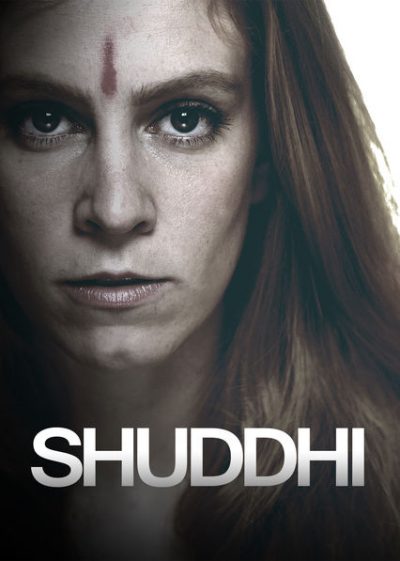 I should probably start by providing some background the film omits – likely because the intended Indian audience were well aware of it. In 2012, a notorious gang-rape took place in Delhi, the victim subsequently dying. Of the six attackers, four were sentenced to death and one committed suicide in prison – but the sixth, being a juvenile, could only receive a maximum sentence of three years. This loophole appalled many, including two journalists depicted in this film, Jyothi (Nivedhitha) and Divya (Karagada), who begin a campaign to revise the law.
I should probably start by providing some background the film omits – likely because the intended Indian audience were well aware of it. In 2012, a notorious gang-rape took place in Delhi, the victim subsequently dying. Of the six attackers, four were sentenced to death and one committed suicide in prison – but the sixth, being a juvenile, could only receive a maximum sentence of three years. This loophole appalled many, including two journalists depicted in this film, Jyothi (Nivedhitha) and Divya (Karagada), who begin a campaign to revise the law.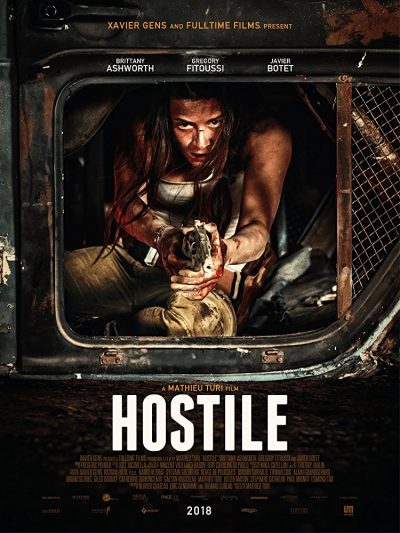 After an un-specified global apocalypse, humanity is reduced to small bands of scattered survivors, who have to try and scratch out survival, while avoiding the attacks of “reapers”, mutated creatures which stalk the landscape, especially after dark. One of those survivors is Juliette (Ashworth), who is on a foraging mission in the desert when an accident throws her off the road, and leaves her with a badly-broken leg. She has to wait for help to arrive, fending off the reaper (Botet) which is prowling the area, with whatever she can find to hand. As she does so, she thinks about life before the apocalypse, where she escaped drug addiction with the help of her boyfriend, gallery owner Jack (Fitoussi) – only for happiness to be fleeting, and taken away from her when multiple tragedies strike.
After an un-specified global apocalypse, humanity is reduced to small bands of scattered survivors, who have to try and scratch out survival, while avoiding the attacks of “reapers”, mutated creatures which stalk the landscape, especially after dark. One of those survivors is Juliette (Ashworth), who is on a foraging mission in the desert when an accident throws her off the road, and leaves her with a badly-broken leg. She has to wait for help to arrive, fending off the reaper (Botet) which is prowling the area, with whatever she can find to hand. As she does so, she thinks about life before the apocalypse, where she escaped drug addiction with the help of her boyfriend, gallery owner Jack (Fitoussi) – only for happiness to be fleeting, and taken away from her when multiple tragedies strike.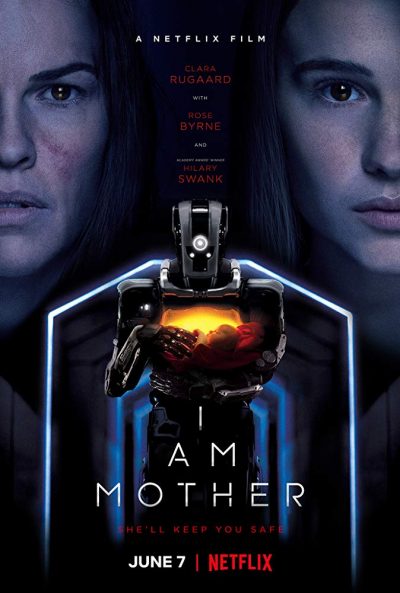 After an extinction-event has turned Earth uninhabitable, an underground “ark” holds thousands of human embryos, overseen by a robotic Mother (voiced by Byrne, performed by Hawker). One embryo is brought to fruition, becoming Daughter (Rugaard, resembling a young Jennifer Garner), who grows up into a young woman, educated by Mother to believe she’s alone on the planet. But she begins to doubt what Mother tells her, and these doubts are confirmed when another, older woman (Swank) shows up. Let in by Daughter, she tells tales of humanity outside struggling for survival against robot killers. Everything Daughter has been told is a lie. Or is the new arrival telling the whole truth either?
After an extinction-event has turned Earth uninhabitable, an underground “ark” holds thousands of human embryos, overseen by a robotic Mother (voiced by Byrne, performed by Hawker). One embryo is brought to fruition, becoming Daughter (Rugaard, resembling a young Jennifer Garner), who grows up into a young woman, educated by Mother to believe she’s alone on the planet. But she begins to doubt what Mother tells her, and these doubts are confirmed when another, older woman (Swank) shows up. Let in by Daughter, she tells tales of humanity outside struggling for survival against robot killers. Everything Daughter has been told is a lie. Or is the new arrival telling the whole truth either?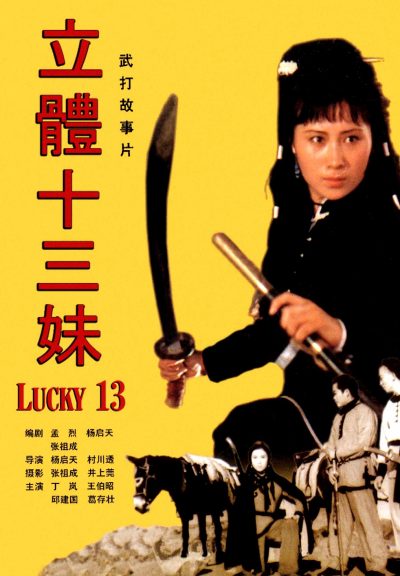 Despite a mangled title, what you have here is a straightforward tale of vengeance – and its attempts to diverge from that narrative are when the film is at its least interesting. Evil general Ji Xian Tang kills the parents of Ho Yu Fung (Ding): well, I suppose technically he only kills her father, her mother committing suicide by the corpse. In some remarkably unsubtle foreshadowing, Yu Fung is told, “This broadsword is our family heirloom. Our hope for vengeance is in your hands.” Given this, it’s no surprise she escapes with the help of a brave sacrifice from a servant, and becomes the pupil of a kung-fu master.
Despite a mangled title, what you have here is a straightforward tale of vengeance – and its attempts to diverge from that narrative are when the film is at its least interesting. Evil general Ji Xian Tang kills the parents of Ho Yu Fung (Ding): well, I suppose technically he only kills her father, her mother committing suicide by the corpse. In some remarkably unsubtle foreshadowing, Yu Fung is told, “This broadsword is our family heirloom. Our hope for vengeance is in your hands.” Given this, it’s no surprise she escapes with the help of a brave sacrifice from a servant, and becomes the pupil of a kung-fu master.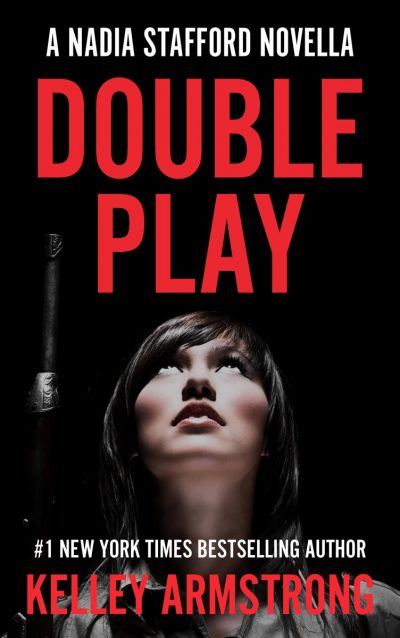 Some years ago, my Goodreads friend Mary J.L. gave the original novel of the author’s Nadia Stafford trilogy a favorable review, and that put it on my radar. As a rule, I don’t read novels that are only published in electronic format (it does have a audio version, but I don’t listen to audio books either), but I do read short e-stories; electronic publishing provides a forum for those works which no longer exists in print, what with the demise of general-circulation magazines. This tale, as a novella, occupies a middle ground, but commercially novellas are in much the same boat as short stories –a single one wouldn’t sell very well in print format. So I felt it was fair to treat it the same way, and thought it would be a good way to check out the series for myself.
Some years ago, my Goodreads friend Mary J.L. gave the original novel of the author’s Nadia Stafford trilogy a favorable review, and that put it on my radar. As a rule, I don’t read novels that are only published in electronic format (it does have a audio version, but I don’t listen to audio books either), but I do read short e-stories; electronic publishing provides a forum for those works which no longer exists in print, what with the demise of general-circulation magazines. This tale, as a novella, occupies a middle ground, but commercially novellas are in much the same boat as short stories –a single one wouldn’t sell very well in print format. So I felt it was fair to treat it the same way, and thought it would be a good way to check out the series for myself.